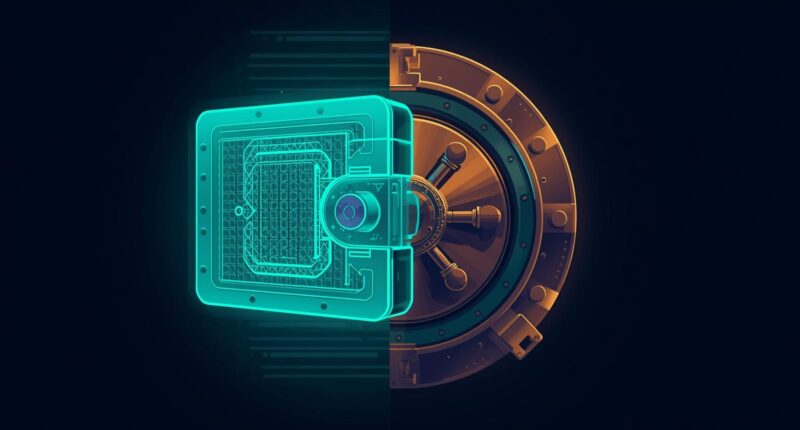Digital Wallet vs Bank Account: Which Is Better for Your Money?
In today’s fast-changing financial world, the debate of digital wallet vs bank account has become more relevant than ever. As technology transforms how we handle money, many people are shifting from traditional banking to mobile-based wallets. But are digital wallets really a substitute for a bank account, or do they serve different purposes?
Why Compare Digital Wallet vs Bank Account?
Understanding digital wallet vs bank account is crucial for making smart financial decisions. Both systems offer convenience and security, but they differ in how they operate and what they provide.
-
Bank accounts remain the backbone of financial management, offering savings, loans, and regulated services.
-
Digital wallets bring speed, mobility, and ease of transactions, especially for online and mobile payments.
By comparing both, you can choose the right mix for your financial lifestyle.
What Is a Digital Wallet?
A digital wallet is an app or electronic system that allows users to store money and make transactions digitally. Examples include PayPal, Apple Pay, Google Wallet, and Venmo.
Advantages of digital wallets:
-
Instant peer-to-peer transfers
-
Contactless and online payments
-
Integration with e-commerce platforms
-
Loyalty rewards and cashback
Limitations:
-
Limited savings features
-
Dependency on internet and mobile devices
-
Lower regulatory protection compared to banks
What Is a Bank Account?
A bank account is a financial account maintained by a licensed bank or credit union. It allows for deposits, withdrawals, and access to loans.
Advantages of bank accounts:
-
Secure savings and deposits
-
Loan and credit opportunities
-
Government-backed insurance (e.g., FDIC in the U.S.)
-
Wide acceptance for salary deposits and bill payments
Limitations:
-
Slower transactions compared to digital wallets
-
More paperwork and formalities
-
Limited accessibility without bank branches or ATMs
Table: Digital Wallet vs Bank Account
| Feature | Digital Wallet | Bank Account |
|---|---|---|
| Accessibility | Mobile-based, instant payments | Requires bank/ATM access |
| Transaction Speed | Instant (online & P2P) | 1–3 business days (sometimes) |
| Savings & Interest | Usually none | Provides interest on deposits |
| Security | Encryption, but limited coverage | Heavily regulated, insured |
| Loan Availability | Not available | Personal, auto, home loans |
| Best For | Quick payments, daily spending | Long-term financial management |
This comparison shows that in the digital wallet vs bank account debate, each serves unique roles in money management.
When to Use a Digital Wallet
Digital wallets are perfect for:
-
Online shopping
-
Peer-to-peer transfers
-
International remittances
-
Quick bill payments
-
Contactless in-store purchases
They add convenience but should be backed by a strong financial base like a bank account.
When to Use a Bank Account
Bank accounts are best for:
-
Building long-term savings
-
Receiving salaries or government benefits
-
Accessing loans and mortgages
-
Safeguarding large sums of money
-
Retirement and investment accounts
In the digital wallet vs bank account debate, banks still win in terms of financial foundation and long-term security.
Digital Wallet vs Bank Account: Which Should You Choose?
-
Choose a digital wallet if you value convenience, fast transactions, and mobile-based spending.
-
Choose a bank account if you want security, regulated services, and access to credit.
-
Best approach: Use both together. Keep your long-term funds in a bank and use digital wallets for quick transactions.
Internal and External Resources
👉 For more financial management insights, read:
How to Improve Your Credit Score Fast
👉 For official digital payment data, see the Federal Reserve Payment Study:
FED Payment Trends
Final Thoughts on Digital Wallet vs Bank Account
The digital wallet vs bank account discussion shows that both systems have unique strengths. Digital wallets provide unmatched convenience for daily spending, while bank accounts remain essential for savings, loans, and long-term security.
Instead of choosing one over the other, smart individuals use both. Together, they create a balanced financial ecosystem—combining the reliability of banks with the flexibility of digital wallets.









